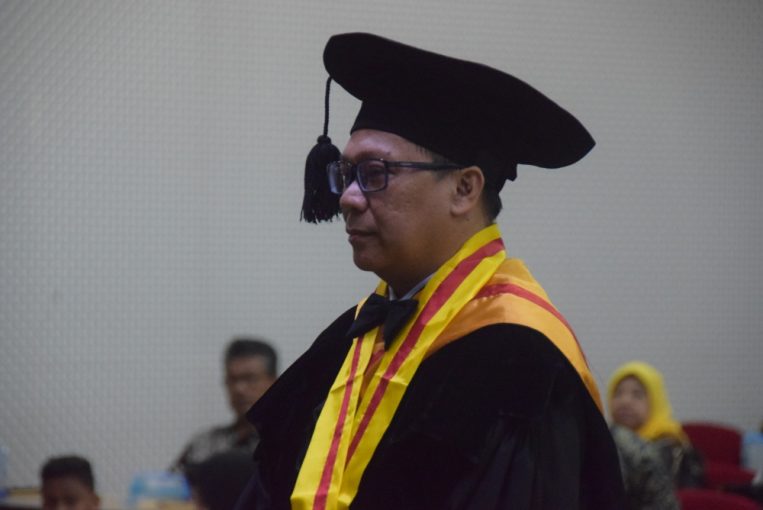


Yogyakarta (28/3) Gadjah Mada University Graduate School (SPs) held an open examination for Andi Faisal's dissertation, a student of Cultural and Media Studies. The Doctoral Promotion takes place in the 5th floor Seminar Room, UGM Graduate School. On this occasion Andi explained the results of his research on cultural transformation and social life in the public spaces of coffee shops in Makassar and the power relations in them. This study shows that the dynamics of coffee shops have shaped the classification and realization of the space and manner of coffee shops as public spaces in the city of Makassar in the post-reform era.
In his presentation, Andi emphasized that this research was highlighted in the perspective of cultural studies using a spatio-publico sphere framework, which is an approach that looks at the public space of a coffee shop, both from the public space framework and the public sphere. The results show that the post-reform era is a crucial point in the transformation of the life of coffee shops in Makassar. The production of space and discourse changes from socio-cultural to socio-political and economic for the construction of power relations over the Makassar public. Every element of the public is present together to produce coffee shop social spaces, which make coffee shops a political space (space of politics) as well as politics of space.
The concept of a third space (third space) is no longer relevant when the Makassar public uses a coffee shop as a workplace (second space), a space for socializing, building networks, performing arts, and contestation. Even though they function as public spaces, coffee shops still have their respective publics, which make it between the public and private spaces at the same time. Contests over the domination and commodification of coffee shops have also continued to emerge demanding the right to public space, both through the participation of critical youths and through “alternative” coffee shops formed by those who are engaged in activism. (SPs / Eni)
